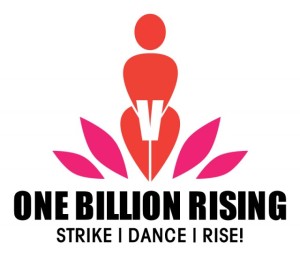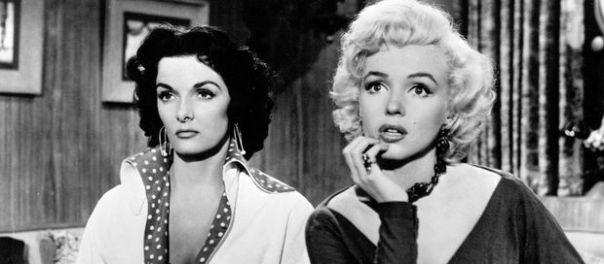Why should hair color determine a woman’s intellectual worth?
This is a question I have lately been asking myself.
So, this post will be a little less formal than I would like. This would make an amazing research project, hint hint! I have been both a “blonde” and a “brunette.” Let’s face it, I love hair dye, whether it be blonde, brown, purple, or blazing red. To me, it’s art on your scalp! I recently went from having sandy blonde hair, which is actually close to my natural hair color, to a lovely shade of walnut stain brown. 🙂 (Not only do I love hair dye, but I adore descriptive adjectives! Thanks BA in English!) I placed a bet with my friends that I would be treated with more dignity and respect as a brunette as opposed to being blonde. I was correct and I would like to share my observations and my hasty research on the blonde stereotype and its effect on our culture today.
First, let me share some interesting information I found concerning the blonde stereotype. The classic example of the “dumb blonde” can best be witnessed when looking at the novel and film Gentlemen Prefer Blondes starting a bleach blonde Marilyn Monroe who plays the part of innocent, quirky, and essentially birdbrained Lorelei. Through her dumb blonde antics, she proves that she is preferred by men and is able to rack up a nice collection of diamonds. A featured article in the August 1998 edition of Harper’s Bazaar, speaks to Anita Loos’s creation and the inspiration behind the legendary novel and film. The article reveals that Loos’s inspiration for the character of Lorelei was her male friend and the “birdbrain” women that he dated. She was also inspired by a party that she attended where a fair haired woman was present. Loos was facinated by her observations of how the men fawned over the blonde woman. The stereotypical image of the blonde who can manipulate men with her innocence, charm, and submissiveness in order to recieve diamonds was thus born. Or was this an extension of a longstanding stereotype?
In western civilization, especially Europe, blonde hair is considered attractive, particularly coupled with blue eyes. This combination is reminiscent of childhood for women who are often born with light hair, skin, and eyes. However, these features often darken over time. With the birth of the cosmetic industry, this has allowed women access to hair color, and even blue contacts. Women are able to transform their looks and appeal to this youthful appearance. Also, think about childhood and its connection to innocence, nievity, and helplessness. These are both historically considered desirable traits in a woman. With innocence and nievity, a woman must be “guided” by the more experienced and noble man. Are the wheels in your mind starting to turn???
While researching the blonde stereotype, I discovered a woman named Rosalie Duthe. She is considered the first “dumb blonde.” She was a celebrated French courtesan. She was the misteress of many noble men during the 18th century. She was considered a “dumb blonde” not only for her obviously blonde hair, but the fact that she was unable to carry an intelligent conversation. When spoken to, she paused for extremely long periods before speaking, thus making her seem dumb not only in the intellectual sense, but her percieved inability to speak. Also, just an interesting note, she was often the subject of many full nude painting. Is anyone else thinking Playboy and how Hue Heffner prefers blondes for his “full nudes?”
When mentioning Playboy, this brings my discussion back to modern culture. How often do we see blonde women in magazine, pornographic material, and other media as the dumb, submissive woman who NEEDS a man to fulfill her needs? She needs someone to lead her and tell her how to literally survive! I found this article from the New York Times that was a humerous genetics-oriented rebuttal to the blonde stereotype. Getting a little sidetracked from the blonde stereotype, have you ever noticed that brunettes are often portrayed as (I hate to use this word) bitches? Just look back at the image of Jane Russell and Marilyn Monroe above. Notice their hair and notice their portrayal. I’m telling ya, someone NEEDS to do reserach on not only the blonde stereotype, but the reason why any female trait becomes a stereotype/joke. Maybe I’ll take this upon myself!
So, to end my little research/rant, I want to share my experience/observation/bet/experiment that I have taken upon myself as of late. While at both the workplace and college, as a blonde, I have been treated as an unintelligent woman with low expectations, and it is a huge surprise when I strut my stuff intellectually. When I make a mistake as a blonde, it is cute and excused. I just get the typical chuckle and, “Oh it’s ok, you’re a blonde!” Gee thanks. I am a target for cat calls and derogatory remarks. Apparently, it’s ok… I’m a blonde. However, since my hair transformation to the dark side, my world has changed… more than I thought it would. I am now the hateful bitch who is to be avoided when a mistake is made. Nevertheless, I am respected. Sometimes I am feared! It is quite hilarious to me. I have noticed that I am not randomly groped at the bar, the makeup counter lady does not run me down with the newest product, I am trusted with counting money, I am included in intellectual conversations, and women customers trust me when dealing with their husbands. In general I am respected now. The hair color commercials are right, what a difference a new color can make! This is not to say that I am now living happily ever after with my raven locks. This little expirement and research has brought to my attention even more injustices forced upon women by culture.
I would love it if anyone wants to share any comments, research, articles, ideas, experiences, ANYTHING.



